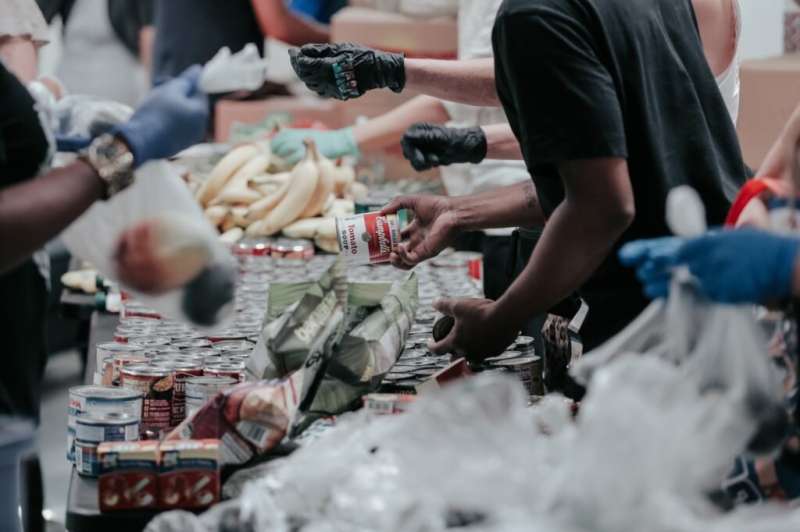
The COVID-19 pandemic and its associated lockdowns may have worsened worries over food insecurity among many Canadians and negatively impacted their mental health, according to a nationwide survey conducted during the first wave.
People who were younger or who had household incomes below $50,000 were more likely to worry about having enough food to meet their household needs, says researcher Dr. Corey McAuliffe, a postdoctoral fellow at UBC’s school of nursing in the faculty of applied science.
Indigenous participants, people who had pre-existing mental health conditions, a disability, or who had children under 18 living at home were also more likely to feel concerned about their food supply.
“Food worry was already a concern before the pandemic, as 13 percent of Canadian households felt a degree of food insecurity pre-pandemic,” she says.
“When the pandemic hit, multiple issues collided and elevated those worries significantly. Shopping for groceries became stressful—we were uncertain about how the virus was transmitted. We wondered how to effectively sanitize our groceries. There were shortages of critical staples like flour and rice and even bread,” adds Dr. McAuliffe, recently named one of Canada’s health systems impact research fellows.
And the more people worried about their food supply, the worse their mental health was.
“People who felt food worry were almost two times more likely to report worsened mental health compared to those who didn’t have this concern,” says Dr. McAuliffe. “They had higher odds of feeling anxious or depressed. Even more concerning, they had more than triple the odds of experiencing suicidal thoughts.”
It’s important to understand that the link between food security and mental health is a crucial one, adds Dr. Jennifer Black, one of the paper’s authors and an expert on food, nutrition and health who teaches in the faculty of land and food systems at UBC.
“This study echoes a growing body of evidence that clearly shows that far too many Canadians worry that they don’t have stable access to enough food to meet their household’s basic needs. It also reflects the important overlaps between several of our most pressing public health challenges including poverty, inadequate and inequitable access to food, and poor mental health,” she says.
For their next step, the researchers will be considering how food-related worries and dietary practices were impacted during and following the pandemic.
“Our research and advocacy efforts need to continue to seek out more effective strategies to make sure that everyone has physical, social and economic access to sufficient, safe and nutritious food. This is the time to ask our leaders about how they are going to ensure that all Canadians have both enough income and access to the basic necessities of life, which this research reminds us is essential for physical and mental wellbeing,” says Dr. Black.
The paper, “Examining the associations between food worry and mental health during the early months of the COVID-19 pandemic in Canada” was published recently in the Canadian Journal of Public Health. It analyzed responses from 2,903 individuals living in Canada who participated in the first round of a multi-round study on the mental health impacts of the pandemic conducted by UBC and the Canadian Mental Health Association. The study is co-led by Dr. Emily Jenkins, a professor in the UBC school of nursing, and Dr. Anne Gadermann, a professor in the school of population and public health.
More information: Corey McAuliffe et al, Examining the associations between food worry and mental health during the early months of the COVID-19 pandemic in Canada, Canadian Journal of Public Health (2021). DOI: 10.17269/s41997-021-00557-w
Citation: Heightened food worries linked to worse mental health during COVID-19 pandemic (2021, September 23) retrieved 4 October 2021 from https://medicalxpress.com/news/2021-09-heightened-food-linked-worse-mental.html
This document is subject to copyright. Apart from any fair dealing for the purpose of private study or research, no part may be reproduced without the written permission. The content is provided for information purposes only.
Note: This article have been indexed to our site. We do not claim legitimacy, ownership or copyright of any of the content above. To see the article at original source Click Here













